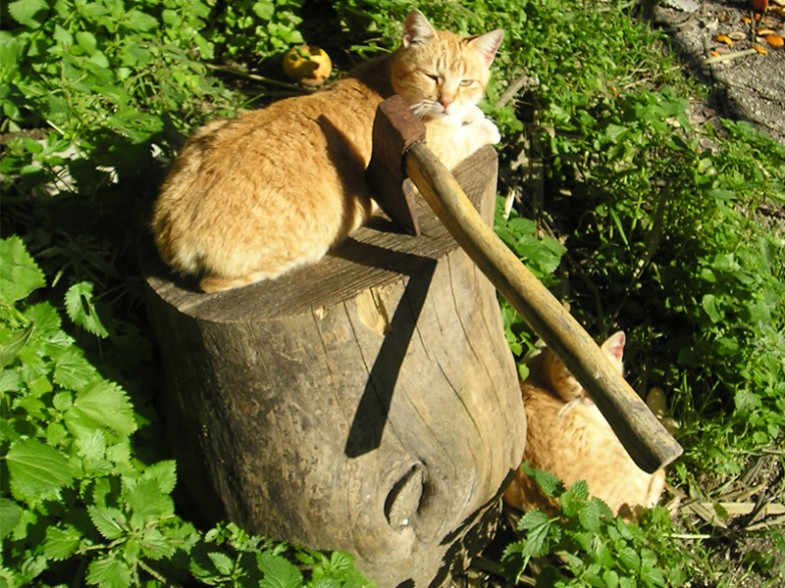
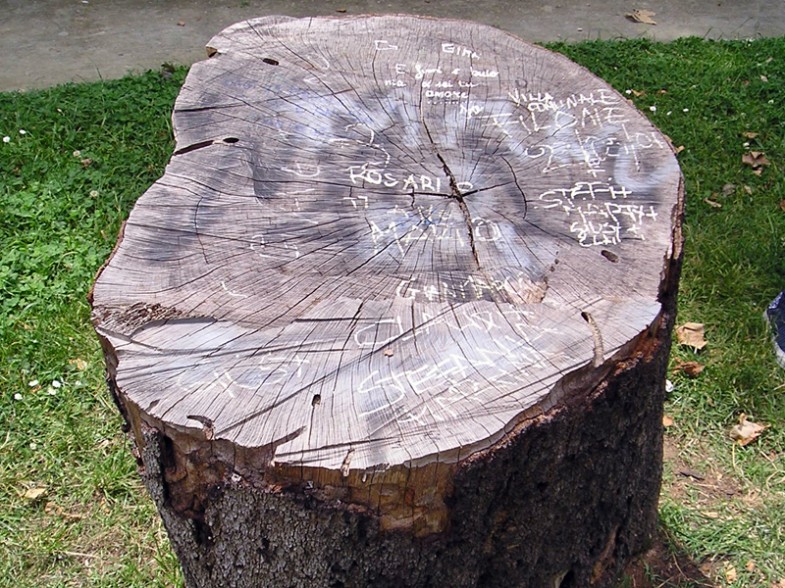
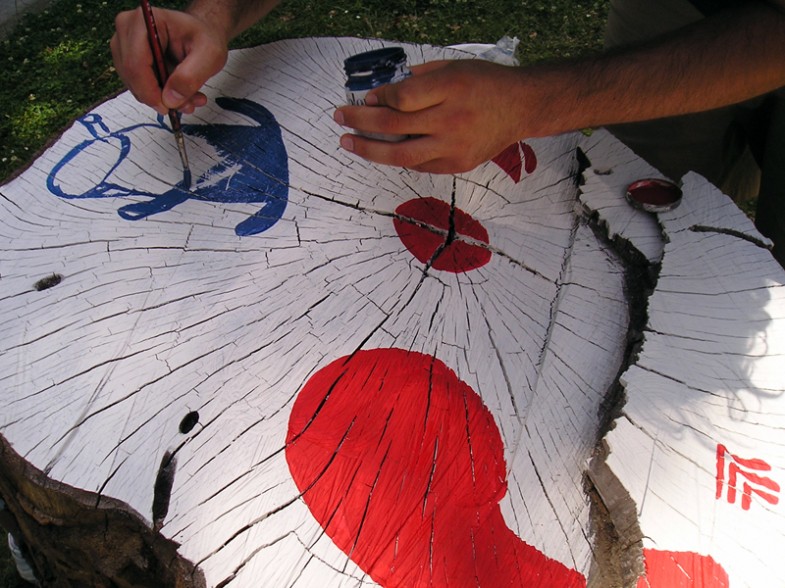
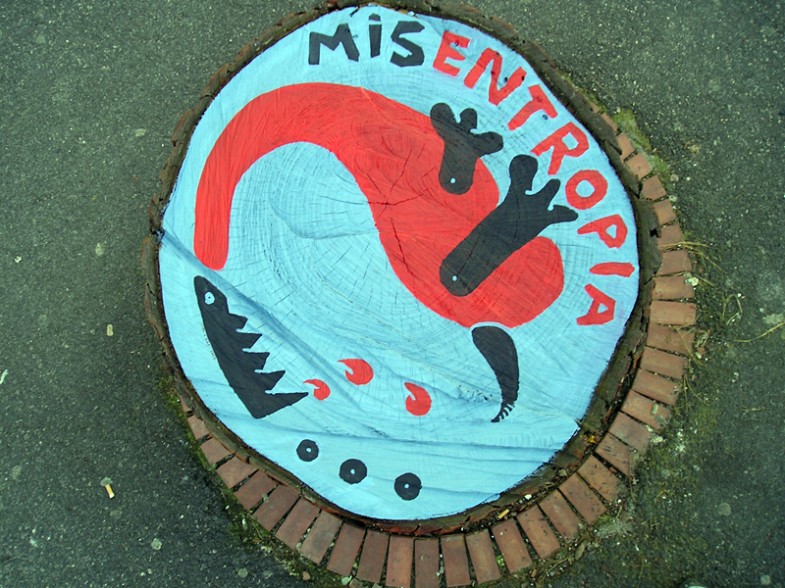
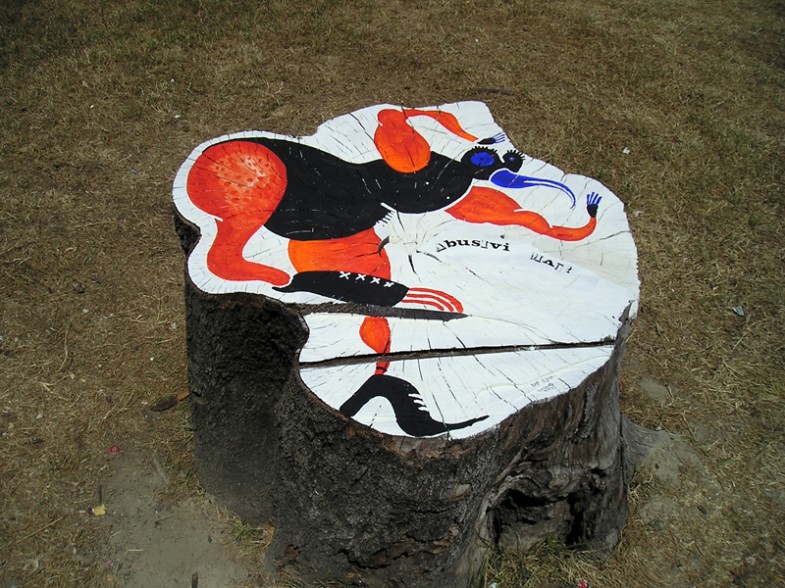
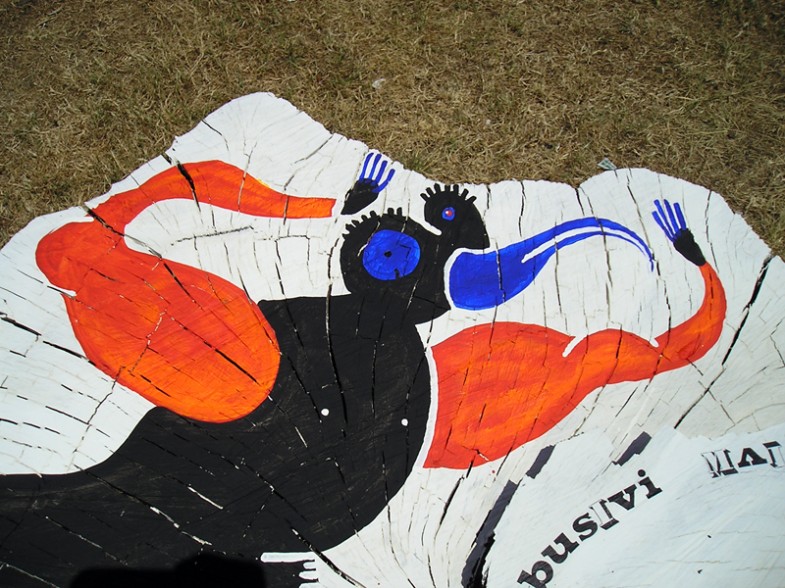
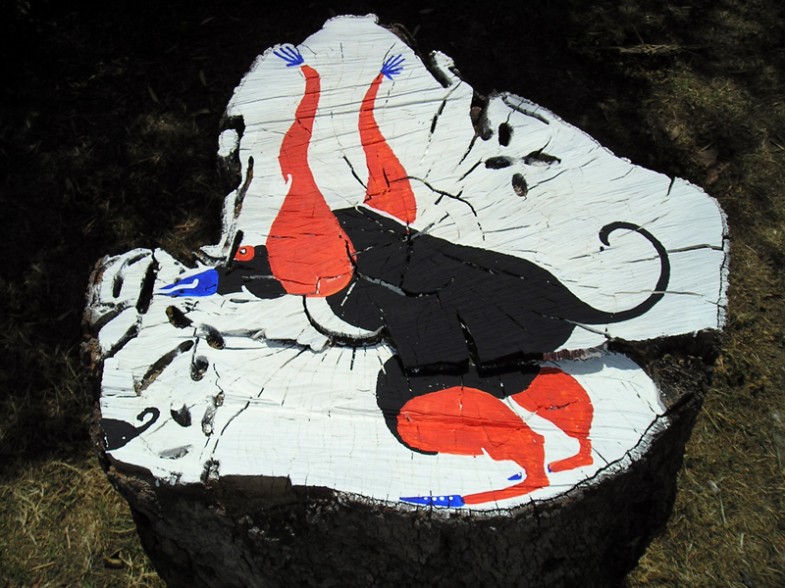
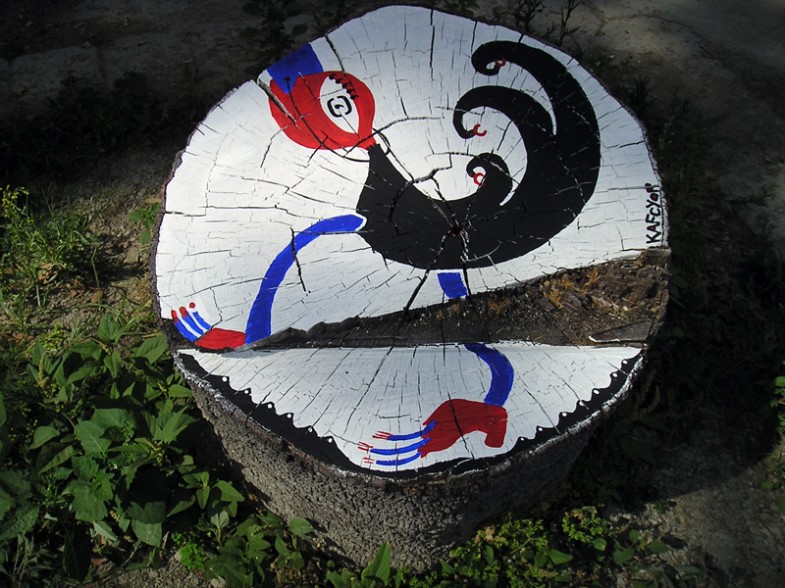
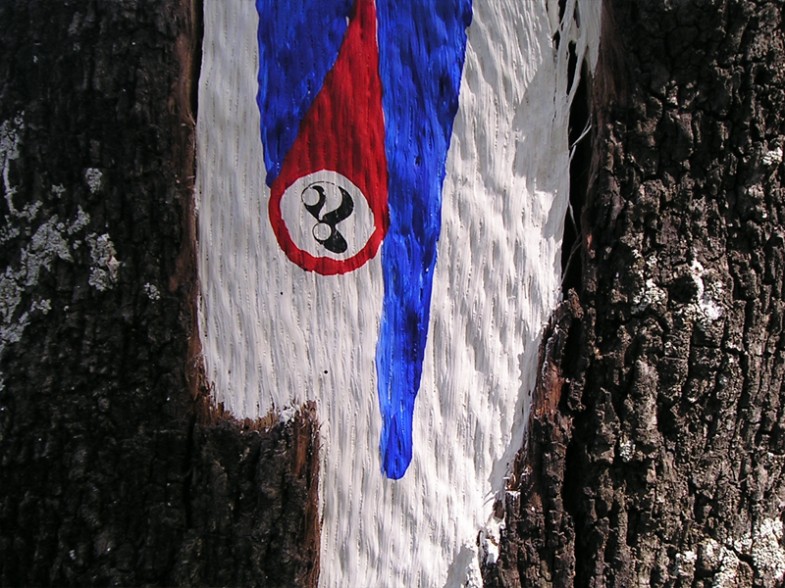
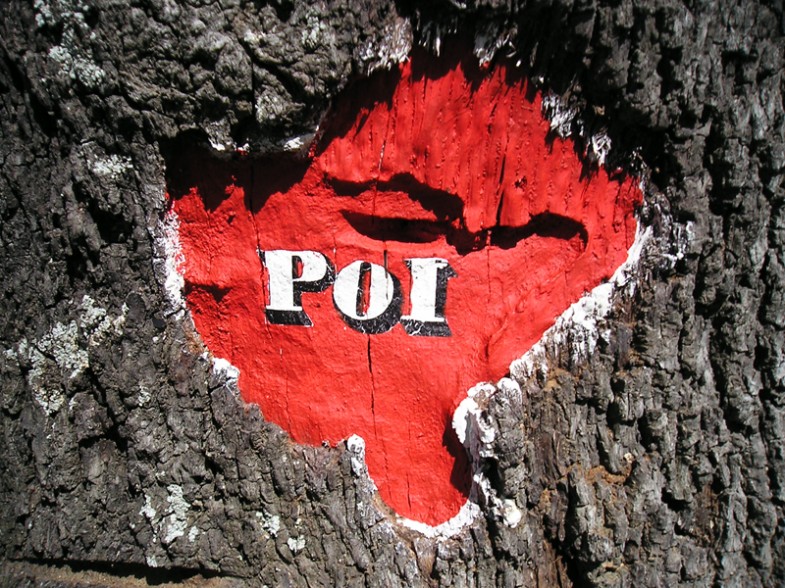
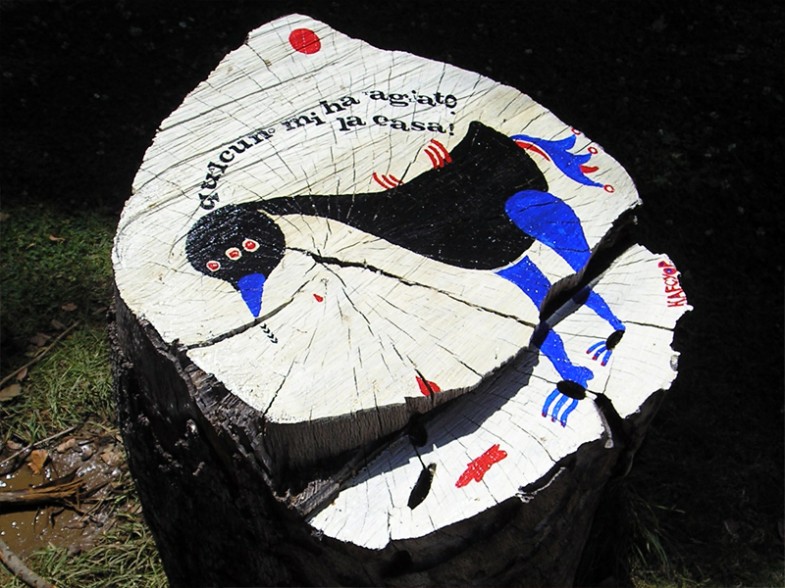
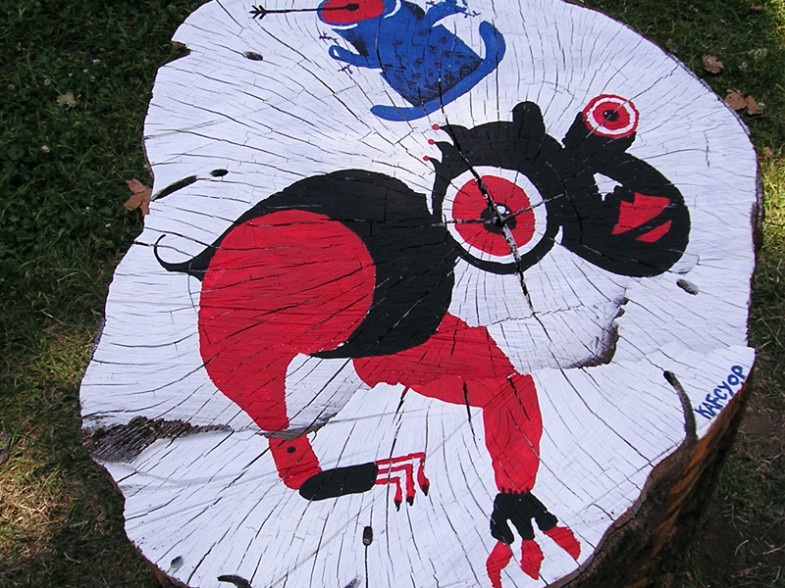
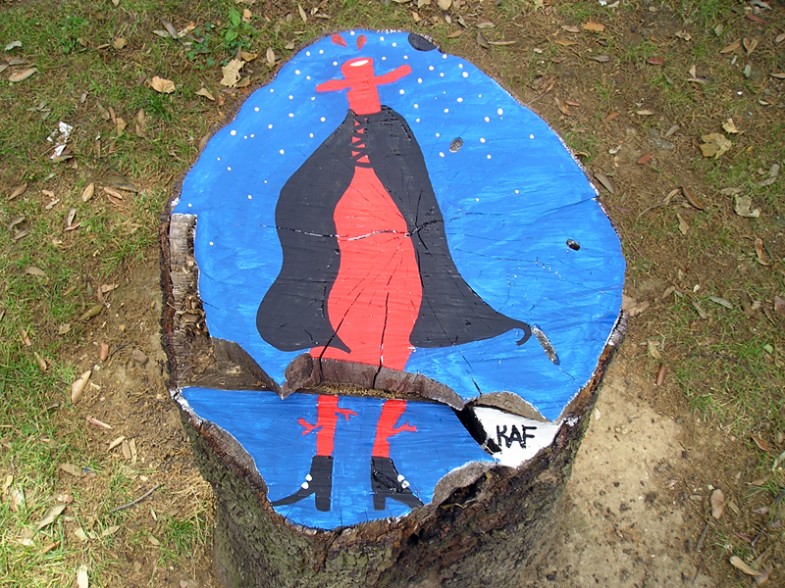
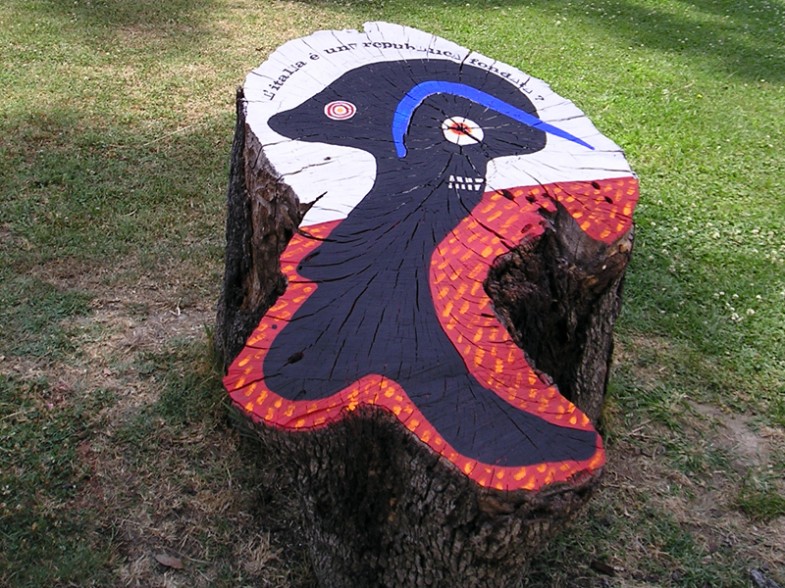
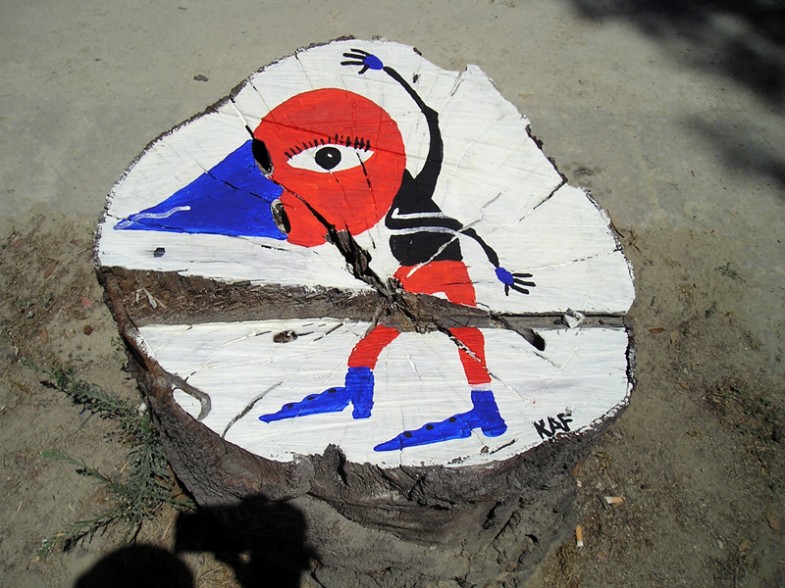
Villa Comunale di Napoli, 2007
We spent the sunny mornings of some years ago dealing with a project that we called Misentropy, merging together the words Misanthropy and Entropy. That is the man who starts to hate his own species, so himself too, and at the same time refuses to acknowledge the entropy basic laws that make him part of the nature. A dangerous mixture of wild individualism and planet un-infinite resources drainage.
Here in Naples, it was already the time of what media called “waste emergency”, but you could rarely see rubbish bags in the streets, we were in the most dangerous but less perceptible phase, when North-Italy factories were dumping toxic waste in the Campania countryside. A simple mechanism, in the end: does legal dumping is too much expensive? So Camorra does it at bargain prices, taking advantage of a undisputed and violent territory control, and of the absent if not colluded state. It’s in this way that, in the last fifteen years, our region got filled up of poisons.
We were searching for a way to discuss of these and other things. We wanted to makes visible the things that habit makes invisible. We thought about the public garden of Naples, a public park tightened by city from one side and sea from the other, circumnavigated by a thousand of cars day and night. While we are writing, there are a lot of trees that get sick and then are cut because of pollution. A landscape made of dozens of cut off logs: tombstones that testify lives just lost. We decided to paint them, openly, even if we weren’t authorized to do it, and see what would happen next.
A Saturday morning, first trunk
We start to clean and prepare the trunk for the paint, and soon some people approach. Children often accompanied by their grandparents, or by (almost always) immigrant babysitters. Then they begin to ask some questions. First they address directly to us, then all the presents take part to the discussion. Children ask: what are you doing? We reply: we paint, we’d like someone noticed the death of this trunk. But why do they die? We don’t know, maybe the air is sick, did you see the waste in the streets? And then there are too many cars around here… And then what we can do, says an old one, go on foot? So, the doubt is instilled, the dialectic dynamite triggered. And the topic broadens, the circle widens, the park gardeners arrive and, feeling a bit involved, remain silent. Neapolitan grandparents start to talk with Sri-Lankan domestic helpers. Okay, they use only infinitive verbs, a bit racist, but it’s a beginning anyway. They could start to talk permanently, and discover they are not so different in the end. The discussion continues, somebody adds: But if we don’t make cars, the factories close. A old one replies that when he was a kid there weren’t so many factories and it was fine anyway. And more, and more… until a little girl, maybe she’s 12-years-old, asks us: but do you believe in God?
Beyond the painting
We did it about a dozen times, and it always happened something like that. Every tree became a little Speaker’s Corner of South-Europe (or North-Africa?).
But instead of the Hyde’s Park monologue, there’s been a more sincere dialogue, unexpected and bizzare too. We like to consider this project more like a cultural politic operation, than an art operation. We regret that we can’t guarantee the continuity of this thing. We must think about rent, food, our primary needs. We’d like to continue, but we are tired sometimes. And then “the reality is beyond”…
Beyond the imaginable
Meanwhile, there wasn’t space for the urban waste anymore also in the authorized dumping grounds, filled with every kind of illegal waste. What we wanted to make visible was now quite smelly. Walking in the streets of Naples, especially in the endless suburbs, you could see hellish things. Rubbish everywhere, that arrived until the buildings first floors, maddened people who burned tons of plastic bags that flooded the streets. Third-world in Occident. Maybe just an anticipation of what industrial countries will live soon. The question was and is much complex and much simple at the same time. Complex because it was born on unsolved and typical Italian issues (Mafia-politics relationships, South-Italy problems, greedy industrial lobbies), and simple because it can be born in every part of the world where production exceeds consumption. What official media haven’t told is that there were at least three emergencies. A environmental one, a hygienic-sanitary one, and a democratic one (the most wicked one, maybe). Using the emergency as an excuse every kind of discussion has been suspended, every protest has been ascribed to the nimby syndrome. If somebody tried to reason about the problem in a more complex way, talking about the waste disposal system or about the production systems, was considered a terrorist. So, in the end, the places chosen to build new dumping grounds have become “national interest strategic zones”, zones controlled by the army. The Camorra and the State seem to be the two sides of the same coin. We shouldn’t surrender to the their intimidations. These are strange times, if we stop talking we renounce to understand them, and then we stop trying to change them. (cyop&kaf)

